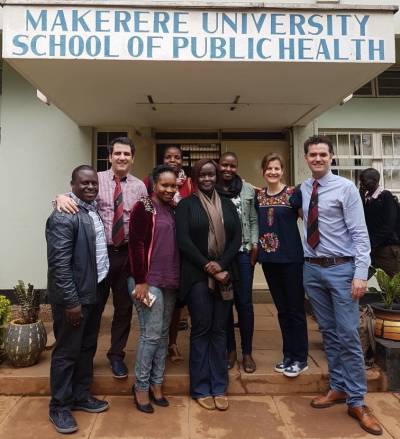Developing a Scalable Programme to Promote Early Childhood Nutrition and Development in Rural Uganda: A Feasibility Study

Project Summary
This Ugandan focused research project aims to collect formative research data in Luuka district to inform the design of a scalable parenting intervention to improve early childhood nutrition and development (ECND) in the first 1000 days of life in rural Uganda. As Uganda rolls out the new Community Health Extension Worker (CHEW) strategy, a unique policy window exists to develop an integrated, scalable ECND programme.
The value of the project is that by developing a scalable ECND programme, an important need may be addressed in Uganda.
Undernutrition accounts for 40% of all child deaths in Uganda. In addition, psychosocial stimulation of young children is inadequate as Britto et al (2013 report that 75-80% of 3-6 year olds do not have toys or are not engaged in learning activities. Evidence has shown that nutrition interventions, combined with early childhood stimulation, can improve cognition, prolong school participation, increase income-earning potential and reduce child mortality and morbidity in high burden settings.
ECND interventions are a priority for international agencies with growing global commitment to implement such interventions at scale in low- and middle-income countries. However, there is limited evidence regarding interventions targeting the first 1000 days that are low cost, feasible at scale and suited to the high burden Ugandan context.
Any testable ECND package would be based on UNICEF's Care for Development (2012) package, which focuses on the development of critical caregiver skills through daily interactions with a particular focus on play and communication. However, it is not yet known how this package should be adapted for the Ugandan context. The formative research proposed in this study thus aims to:
- Understand current attitudes and practices regarding play, communication and nutrition among caregivers, those that influence caregivers and service providers
- Gauge the acceptability and feasibility of utilising the Care for Development training curriculum in the Ugandan setting and any necessary amendments to it in the context
- Understand the feasibility and acceptability of delivering the Care for Development intervention through community group meetings, information corners at health facilities, messages delivered through mobile phones, targeted home visits, film nights and during routine antenatal care visits.
Qualitative in-depth interviews, focus group discussions, observations, meetings of stakeholders and a quantitative survey of caregivers will be the methods used to collect data for this formative work.
 Close
Close

